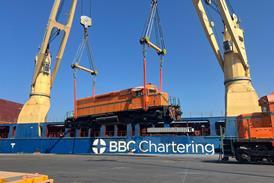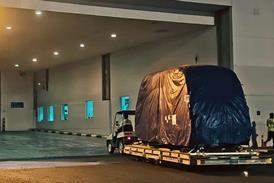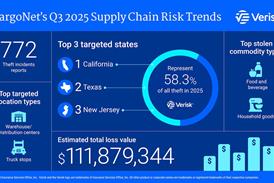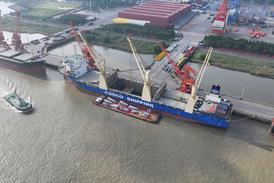United European Car Carriers (UECC) reduced well-to-wake CO₂ emissions by more than 107,000 tonnes in 2024, a 70 percent increase on the 2023 reduction of over 63,000 tonnes, driven in a large part by its Sail for Change programme.

The programme – which launched last year and already has automotive giants including Toyota, Ford and JLR signed up – encourages customers to switch their shipments to vessels powered by low-carbon fuels such as high-impact liquefied biomethane (LBM).
UECC said that its environmental performance has been enhanced by the wider adoption of alternative fuels, including biofuels, low-carbon LNG, bioLNG and LBM. Last year, alternative fuels accounted for 42 percent of consumption across UECC’s 16-vessel fleet, up from 34 percent the previous year.
The company aims to cut emissions by nearly 155,000 tonnes in 2025, moving towards a 2030 target of 187,000 tonnes. UECC’s fleet carbon intensity is projected to reach 57 g CO₂equivalent per megajoule this year – well below FuelEU Maritime and IMO thresholds – enabling the company to monetise surplus compliance.
Looking ahead, bioLNG will take a central role in the company’s decarbonisation strategy. Masanori Nagashima, UECC’s senior manager of business planning and sustainability, said it will be a key fuel to achieve the company goal of a 45 percent reduction in carbon intensity by 2030 (compared to a 2014 baseline) and net zero by 2040, with the fuel being bunkered on UECC’s dual and multi-fuel PCTCs sailing under the Sail for Change initiative. The company has also ordered two multi-fuel LNG battery hybrid newbuild PCTCs due for delivery in 2028 that could be enlisted into the programme.
Nagashima added that bioLNG is extremely beneficial in cutting emissions due to the use of manure-based feedstock that can deliver a high impact in terms of well-to-wake emissions as required by FuelEU, taking into account extraction and processing as well as consumption.
“While this means there is increasing competition for the fuel in shipping, our first-mover role in procuring bioLNG puts us in an advantageous position to secure future volumes of the fuel through building relationships with suppliers,” he said.
















